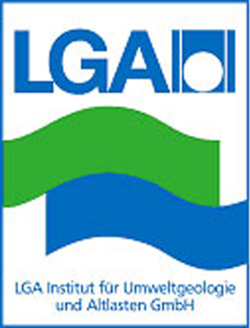Hydrogeology / Water Framework Directive
Water Framework Directive (WFD)
The Water Framework Directive (Directive 2000/60/EC) of the European Parliament and of the Council dated 23 October 2000 sets quality objectives for all EU Member States and provides methods to improve the water quality. The purpose of this Directive is sustainable and environmentally friendly water use.
By 2027 at the latest, rivers, lakes, transitional waters, coastal waters and groundwater should be in a “good condition”. In other words the biocenoses, structure, chemical contents (surface waters and groundwater) and their quantities (in the case of groundwater) are only marginally influenced by human beings.
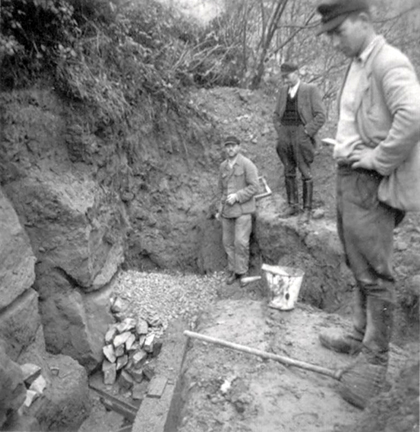
Spring tapping in the early days
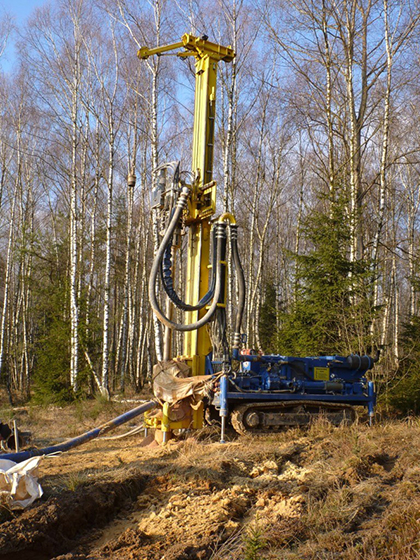
Drilling operation for a new monitoring well
Groundwater / Drinking Water
Clean groundwater, from which drinking water is made of, is indispensable to humans as foodstuff. Increasing contamination has a negative impact on the quality and quantity available. The designation and monitoring of drinking water protection zones are currently significant tasks and secure the future of this important resource.
We supervise projects for the development of drinking water resources for the sustainable use from the preliminary hydrogeological investigations to the final handover for operation.
Our services to you include:
- Site geology with effective groundwater resources
- Properties and yield of the aquifer
- Natural and human influences on the water quality
- Types and miscibility of groundwater
- Groundwater recovery rate
- Extent of the catchment area
- Computation of precipitation runoff models
Rainwater Percolation
Within the meaning of WFD is generally meaningful. The percolation of rainwater makes a valuable contribution to the groundwater regeneration. Moreover, it should be kept in mind that with ever increasing wastewater disposal costs, a lot of money can be saved by the percolation of rainwater (insofar as the site is suitable for percolation).
Our services to you include:
- Implementation of percolation tests
- Determination of permeability coefficients (kf value) by in-situ and laboratory tests
- Evaluation of the contamination in the percolation area
- Computation for the design of percolation plants
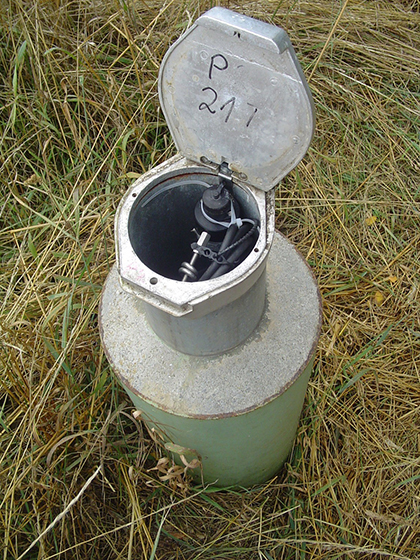
Monitoring well with installed pressure probe for water-level monitoring
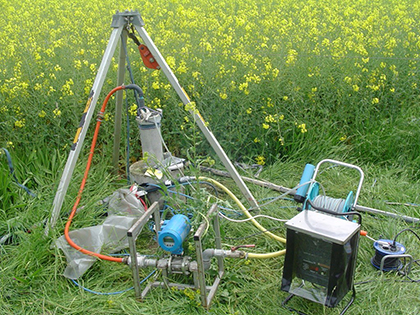
Geophysical investigations at a monitoring well
Hydrogeological Expertises and Conservation of Evidence
Our services to you include:
- Expertises for court cases concerning groundwater and surface water
- Site selection and evaluation for percolation areas, cemeteries and extraction plants for raw materials
- Groundwater monitoring: permanent monitoring of the water quality near landfills, areas dealing with substances hazardous to water, remediation sites or construction measures (dewatering)
- Conservation of evidence of contaminations in surface water bodies
- Flow Quantifications of Watercourses
Interactions are identified, described, and evaluated and their impact on the project is predicted.
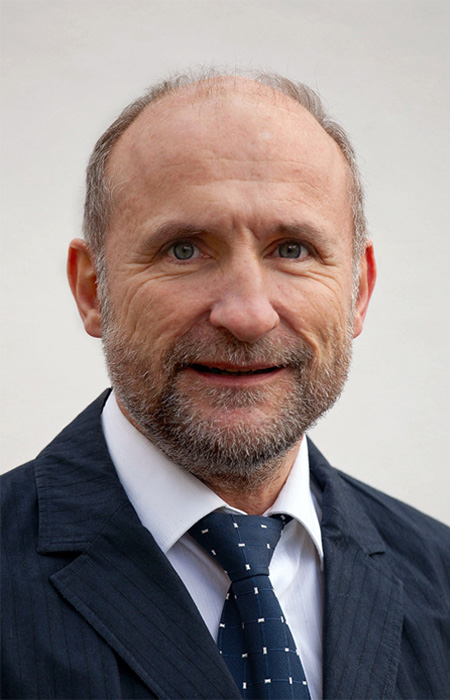
Carlo Schillinger
Managing Director, LBD
Diplom Geologist
Phone: +49 911 12076 101
Fax: +49 911 12076 110
Mobile: +49 171 55 91 875
Carlo.Schillinger@LGA-geo.de
LGA Institut für Umweltgeologie und Altlasten GmbH
Christian-Hessel-Str. 1
D-90427 Nürnberg
Phone: +49 911 12076 100
Telefax: +49 911 12076 110
info@LGA-geo.de
bewerbung@LGA-geo.de
News

Expertise according to DGUV 312-906
“Every year again...” - The expert inspection and...

Recognition as a body for radon measurements in workplaces
Recognition as a body for radon measurements in workplaces...

Experts for safety structures against alpine natural hazards
Experts for safety structures against alpine natural...

Membership in the RAL Quality Association
Membership in the RAL Quality Association...

Impulse Online Edition
LGA Impulse - Online Edition With the current summer...
Older articles
